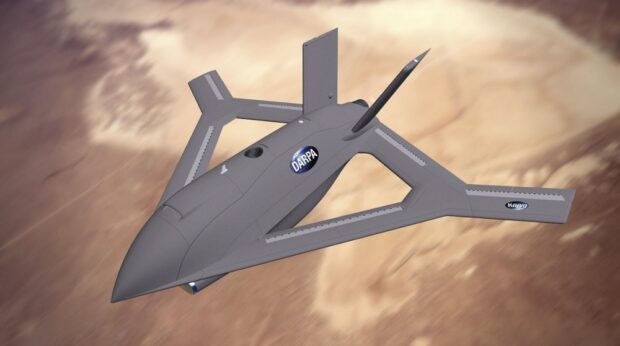A groundbreaking aircraft being designed for the Defense Advanced Research Projects Agency now has an experimental designation—the X-65.
DARPA announced the “X” designation on its social media accounts May 15, a little less than five months after announcing its selection of Boeing subsidiary Aurora Flight Sciences to produce a detailed design for DARPA’s Control of Revolutionary Aircraft with Novel Effectors (CRANE) program.
The X-65, shown by DARPA in an artist’s rendering, seeks to enable active flow control using bursts of air rather than moving flight surfaces on the exterior of the wings and tail to control its flight.
By “removing jointed surfaces,” such a design could improve flight and reduce cost and wear and tear, and also theoretically enhance the aircraft’s stealth characteristics.
The X-65 will include “modular wing configurations that enable future integration of advanced technologies for flight testing,” DARPA noted in a January release.
CRANE has been in the works for several years now, and the contract with Aurora Flight Sciences marked the beginning of the program’s Phase 2, which will include the development of flight software and controls and a critical design review of an X-plane demonstrator.
The contract includes an option for a Phase 3, which would involve flying the 7,000-pound X-65.
The new X-65 is the first “X” aircraft since the Air Force redesignated the NF-16D Variable In-flight Simulator Aircraft as the X-62A in August 2021. That puts it in an exclusive club that has helped shape cutting-edge aeronautical research for decades, including the Bell X-1, the first airplane to break the sound barrier, and the hypersonic X-15. Other more recent examples include the X-37 space plane, the hypersonic X-51 Waverider, and the X-61 Gremlins.
DARPA is working on several other “X-plane” programs, including the “Liberty Lifter,” a long-range cargo seaplane, and the Speed and Runway Independent Technologies (SPRINT) program, for U.S. Special Operations Command.
Source: Air & Space Forces

